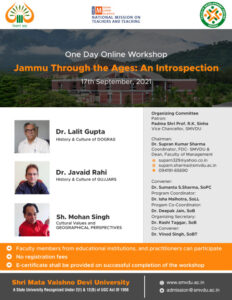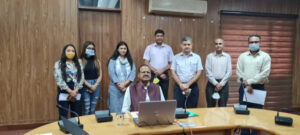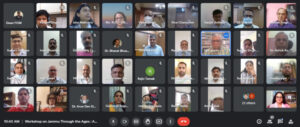Remote ‘smarter media’ workflows allow 60-person post production team to work effectively throughout COVID transition; axle ai software replaced legacy MAM.
Los Angeles, CA – USA | September 20, 2021 — Ever since the pandemic started, many of us have been working from home. At Pie Town Productions, a 25-year-old TV production company based in North Hollywood, they’ve been working from “home” for over two decades. That’s be-cause they produce many of the well-known house renovation/flipping programs on HGTV, including House Hunters, Flip or Flop, Flipping 101 with Tarek El Moussa, and Christina on the Coast. The company is one of Greater LA’s most successful and prosper-ous reality shops.
Yet even Pie Town had to adjust when COVID-19 obligated everyone to “shelter in place,” forcing the vast majority of its staff to work remotely. Fortunately, they had implemented axle ai software to manage all their media, which comprises 100 terabytes of online/work-in-progress clips stored on Avid NEXIS Pro shared storage, and another 200 terabytes of near-line data on a NAS (network attached storage) system. Axle’s web-based user interface is engineered to be accessible from anywhere on any device. Further, axle enables them to select clips from low-resolution proxy media, with final rendering occurring back on the servers, to avoid having to transfer huge files back and forth during postproduction sessions.
“With axle in place, we can now all look at the same clip, at the same time,” explains Dana Besnoy, Pie Town’s SVP of Post Produc-tion. “Axle has connected us in a way we didn’t realize was possible when we all started scampering out of the building at the start of the pandemic.”

(Caption: Dana Besnoy, SVP of Post Production, Pie Town)
Pie Town has a very busy schedule, shooting three to five full episodes of House Hunters per week in addition to its local produc-tions. In all, they produce 200-300 episodes of reality and lifestyle programming per year. The raw footage is copied to the NAS at the end of each shoot, and axle ai automatically generates a low-res proxy, which is then available to the entire team. In all, between 40 and 60 Pie Town employees access axle ai on a daily basis.
“This allows all of our departments to access and review media with their needs in mind. Production can review for camera/audio concerns and/or crew feedback. Story can get a head start on their string out. And Post can access clips needed for transcription,” notes Besnoy. “Axle has been a great tool for tying us all together.”
Like many post houses, Pie Town’s post production workflow uses Avid Media Composer 2018 as their nonlinear editor, with the editors working in a fully Mac environment, and must accommodate a wide variety of original camera formats. “We’re able to accept almost any format that comes from the field; we accept any Sony camera, any Canon camera. Most of our internal equipment is ENG-style workhorse and digital cinema.
Not surprisingly, Pie Town has been leveraging media asset management (MAM) technology for some time now. They were pioneers with Apple Final Cut Server and, when that product’s development was terminated, they transitioned to another MAM for nearly a decade. However, notes Besnoy, that approach hit a roadblock, because the high operating costs and user complexity were a bad match for their needs, and maintaining it was getting more difficult over time. “We made the easy decision to switch to axle; we have millions and millions of digital assets that we need to maintain as an ongoing, growing, organic digital library, and transition-ing to axle just made sense,” she explains. “It’s user-friendly; straight out of the box, it works; setup was seamless and transitioning and transferring our assets from our old MAM to axle took under a week.”
“Axle has been a great MAM solution for us; we’ve been using it for about a year now, and our user base tends not to be highly technical, so the UI of axle is perfect for them,” she observes. “I’ve gotten many compliments from our users that its ease of use is superior to our previous MAM.”
Pie Town’s video testimonial is available at youtu.be/H1xkcQ0YJO8
About axle ai:
Axle ai (http://www.axle.ai) – We make media smarter. Axle ai is the recognized leader in developing radically simple media man-agement software. Its solutions have helped over 700 organizations improve the way they create, share and store digital video con-tent with media management solutions that are easy to install, use and afford. axle’s radically simple software uniquely addresses a burgeoning need and has caught on rapidly among video professionals in post-production, education, broadcast, corporate, sports, house of worship, non-profit, advertising-marketing, and government organizations worldwide.
Axle ai, Inc. is a privately held company; its founders have extensive industry experience in media asset management for creative applications. Investors include Stadia Ventures, Jason Calacanis’s LAUNCH accelerator and Quake Capital. You can invest in axle ai on Republic through Sept. 27th – republic.co/axle-ai. The company is also exhibiting at this week’s virtual TechCrunch Disrupt conference; a pitch video is online at youtu.be/9vJ4LMUnNH8
For more information, please visit https://axle.ai/
Press & Media Contact:
Katy Scott
axle ai, Inc.
+1 617-262-9222
www.axle.ai/





